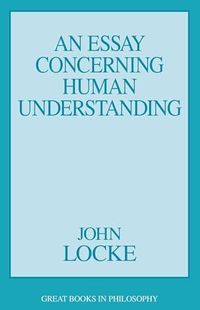
An Essay Concerning Human Understanding Upplaga 2
What is known? And how do we come to know it? These are the primary points of focus for metaphysics and epistemology, respectively. Here, in one of the classic works of early-modern empiricist philosophy, John Locke (1632-1704) attempts to answer these basic human questions by moving away from the rationalist notion of innate ideas to establish the concept of the tabula rasa in which the mind is initially impressed with ideas through perception of the external world of substance. The formation of basic ideas through the perception of primary and secondary qualities, and the more sophisticated development of concepts, is discussed as Locke departs from a purely mental view of knowledge to ground what we know in the firmer soil of empirical observation and in the mind's ability to interrelate ideas from perception. The careful reasoning of Locke's Essay has made it an enduring part of the history of of Western philosophy.
Upplaga: 2a upplagan
Utgiven: 1995
ISBN: 9780879759179
Förlag: Prometheus Books
Format: Häftad
Språk: Engelska
Sidor: 644 st
What is known? And how do we come to know it? These are the primary points of focus for metaphysics and epistemology, respectively. Here, in one of the classic works of early-modern empiricist philosophy, John Locke (1632-1704) attempts to answer these basic human questions by moving away from the rationalist notion of innate ideas to establish the concept of the tabula rasa in which the mind is initially impressed with ideas through perception of the external world of substance. The formation of basic ideas through the perception of primary and secondary qualities, and the more sophisticated development of concepts, is discussed as Locke departs from a purely mental view of knowledge to ground what we know in the firmer soil of empirical observation and in the mind's ability to interrelate ideas from perception. The careful reasoning of Locke's Essay has made it an enduring part of the history of of Western philosophy.
Begagnad bok (0 st)
Varje vecka tillkommer tusentals nya säljare. Bevaka boken så får du meddelande när den finns tillgänglig igen.



